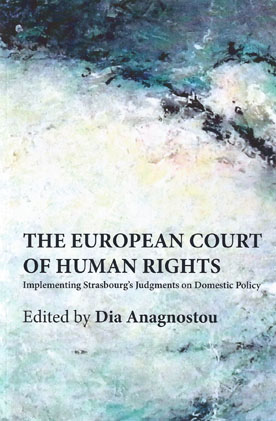
Domestic implementation of European Court of Human Rights (ECtHR) judgments, and their impact upon national laws, policies and institutions. Since the turn of the millenium, the European Court of Human Rights has been the transnational setting for a European-wide 'rights revolution'.
An unprecedented expansion of its case load, along with arguably high levels of compliance with its judgments, testify to its growing authority and perceived effectiveness, akin to Europe's constitutional court in human rights matters. Despite its significance as such, the effects of judgments on national laws, policies and institutions have been little explored.
By adopting an inter-disciplinary perspective, this volume seeks to fill a gap, going beyond the existing, mainly legal and descriptive scholarship. Some of the pertinent questions it asks are: Do national authorities implement Court judgments and what is their impact on national laws, policies and practices? How and why do different and less privileged social actors mobilise the human rights norms contained in the Convention and in the Court's case law? Does this case law influence rights-expansive policy reform?
More broadly, the book aims to contribute to a flourishing scholarship on human rights, courts and legal processes, and their consequences for national politics. It covers eight country-based case studies on state implementation and domestic impact of the ECHR judgements. It provides a focus on disadvantaged social actors. It combines a top-down perspective of official institutions and actors involved in the implementation of judgements, with an interest in the bottom-up processes of social mobilisation.